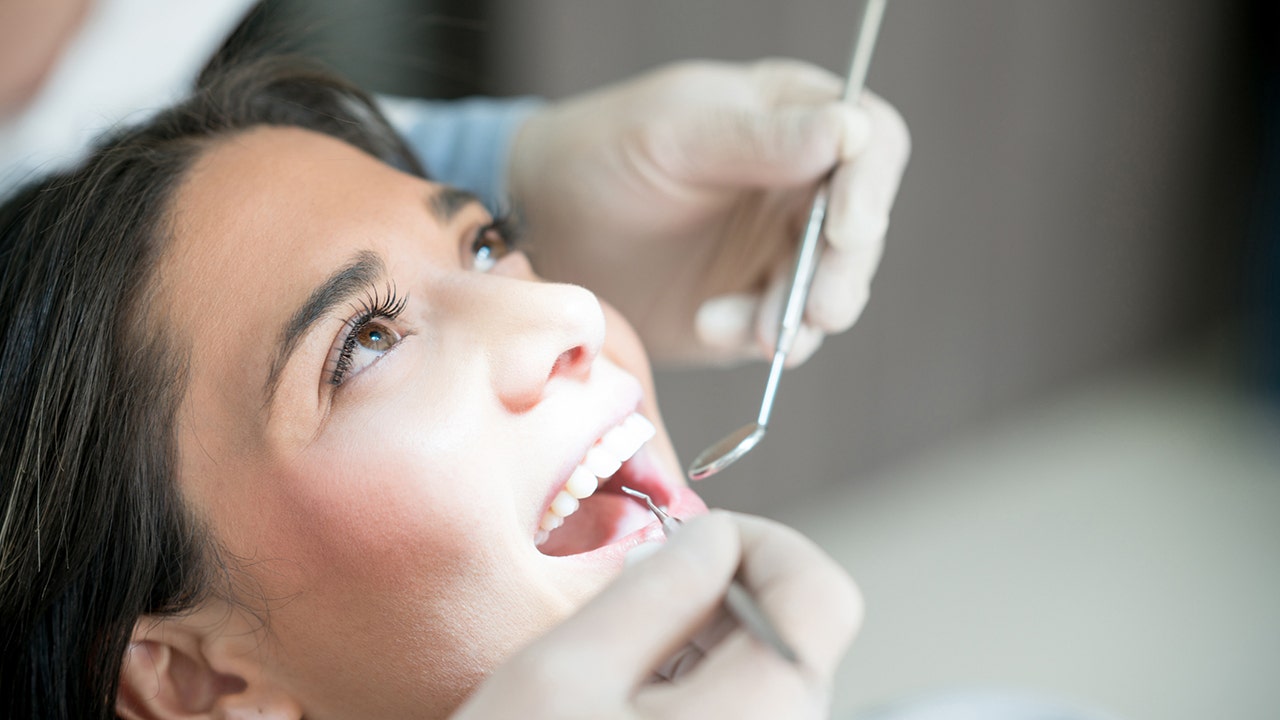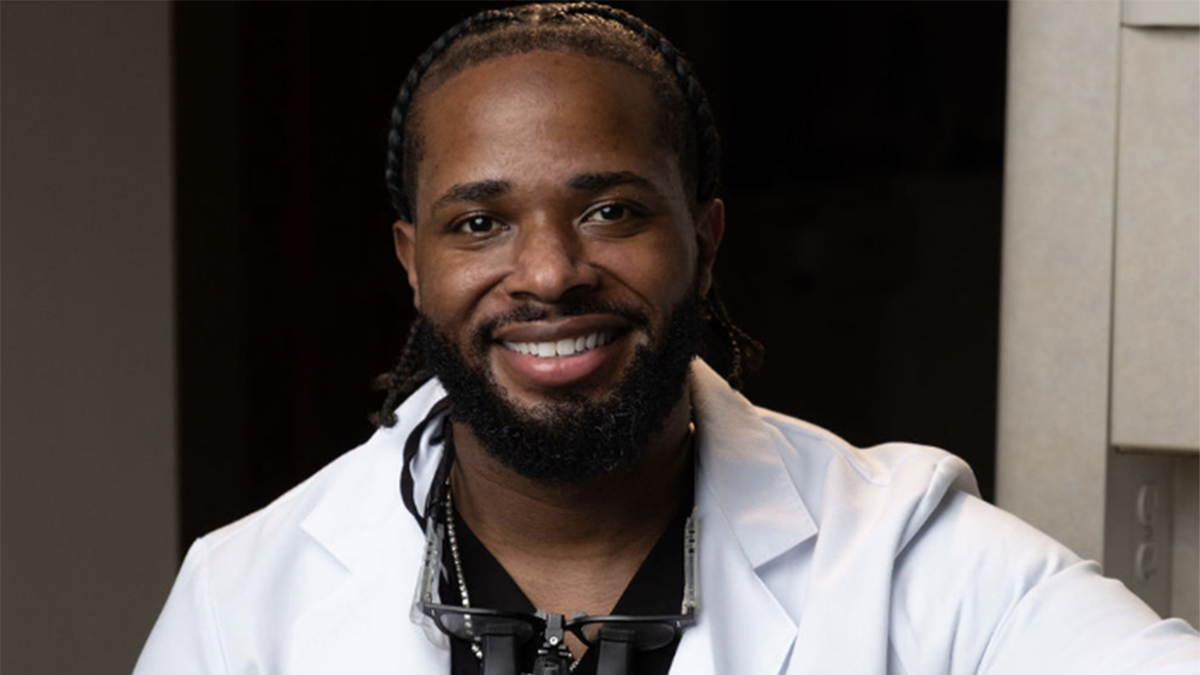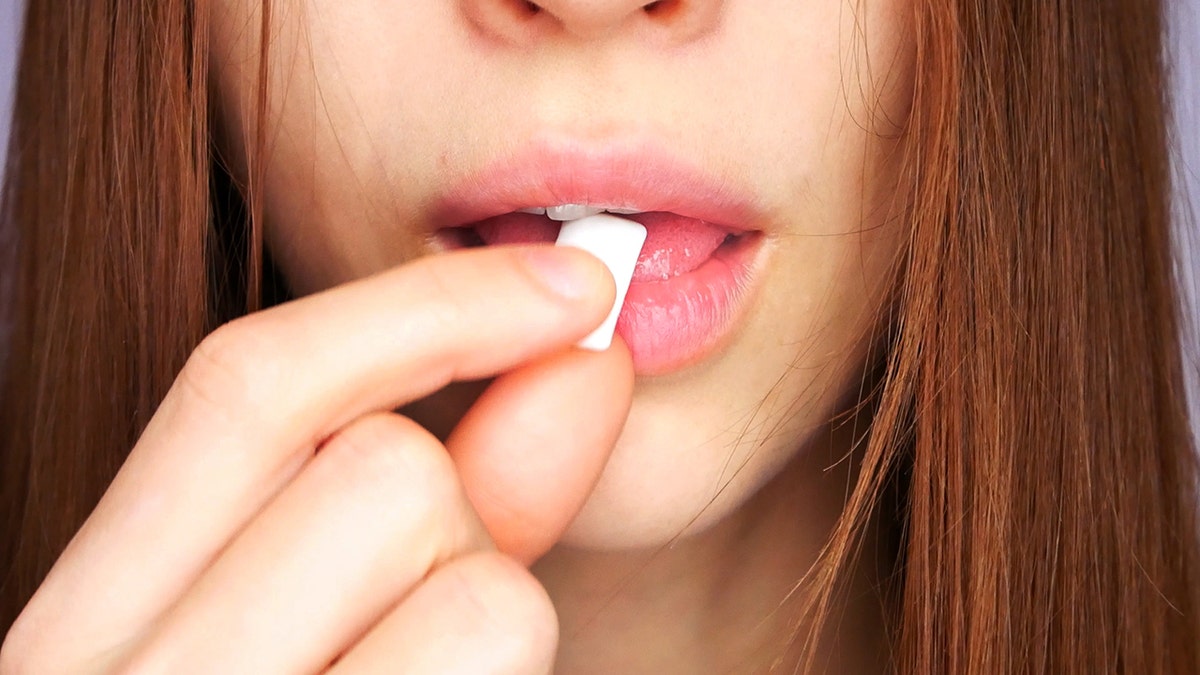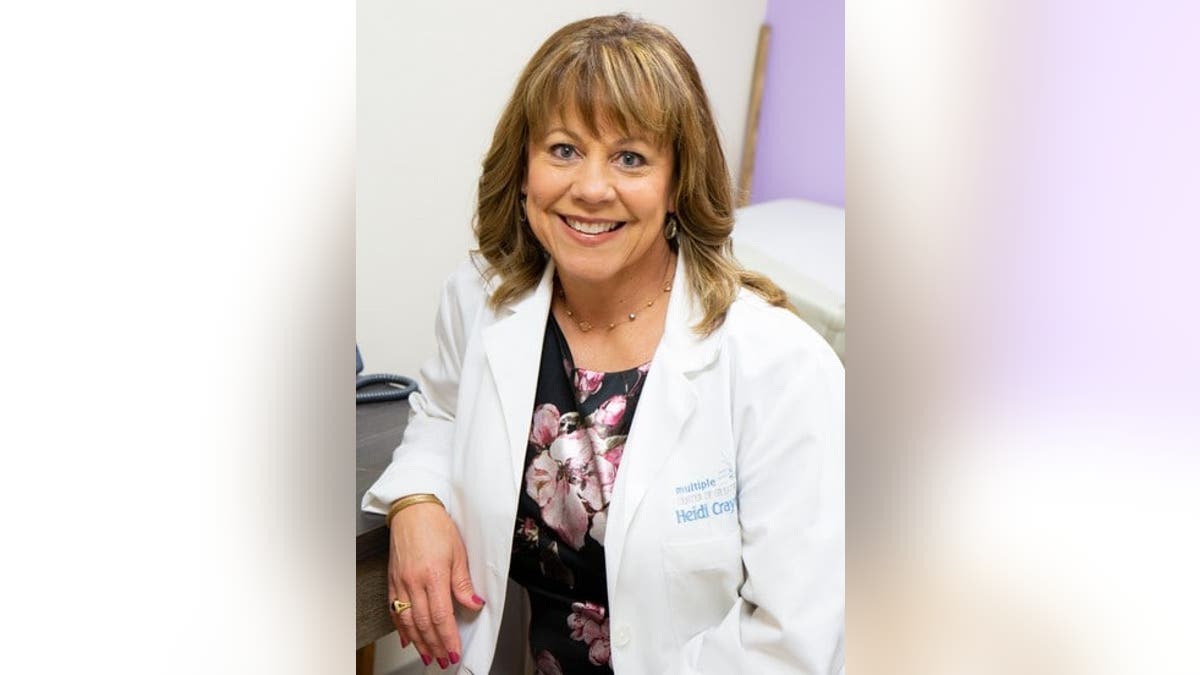Health
A Mystery in the E.R.? Ask Dr. Chatbot for a Diagnosis.

The patient was a 39-year-old woman who had come to the emergency department at Beth Israel Deaconess Medical Center in Boston. Her left knee had been hurting for several days. The day before, she had a fever of 102 degrees. It was gone now, but she still had chills. And her knee was red and swollen.
What was the diagnosis?
On a recent steamy Friday, Dr. Megan Landon, a medical resident, posed this real case to a room full of medical students and residents. They were gathered to learn a skill that can be devilishly tricky to teach — how to think like a doctor.
“Doctors are terrible at teaching other doctors how we think,” said Dr. Adam Rodman, an internist, a medical historian and an organizer of the event at Beth Israel Deaconess.
But this time, they could call on an expert for help in reaching a diagnosis — GPT-4, the latest version of a chatbot released by the company OpenAI.
Artificial intelligence is transforming many aspects of the practice of medicine, and some medical professionals are using these tools to help them with diagnosis. Doctors at Beth Israel Deaconess, a teaching hospital affiliated with Harvard Medical School, decided to explore how chatbots could be used — and misused — in training future doctors.
Instructors like Dr. Rodman hope that medical students can turn to GPT-4 and other chatbots for something similar to what doctors call a curbside consult — when they pull a colleague aside and ask for an opinion about a difficult case. The idea is to use a chatbot in the same way that doctors turn to each other for suggestions and insights.
For more than a century, doctor have been portrayed like detectives who gathers clues and use them to find the culprit. But experienced doctors actually use a different method — pattern recognition — to figure out what is wrong. In medicine, it’s called an illness script: signs, symptoms and test results that doctors put together to tell a coherent story based on similar cases they know about or have seen themselves.
If the illness script doesn’t help, Dr. Rodman said, doctors turn to other strategies, like assigning probabilities to various diagnoses that might fit.
Researchers have tried for more than half a century to design computer programs to make medical diagnoses, but nothing has really succeeded.
Physicians say that GPT-4 is different. “It will create something that is remarkably similar to an illness script,” Dr. Rodman said. In that way, he added, “it is fundamentally different than a search engine.”
Dr. Rodman and other doctors at Beth Israel Deaconess have asked GPT-4 for possible diagnoses in difficult cases. In a study released last month in the medical journal JAMA, they found that it did better than most doctors on weekly diagnostic challenges published in the New England Journal of Medicine.
But, they learned, there is an art to using the program, and there are pitfalls.
Dr. Christopher Smith, the director of the internal medicine residency program at the medical center, said that medical students and residents “are definitely using it.” But, he added, “whether they are learning anything is an open question.”
The concern is that they might rely on A.I. to make diagnoses in the same way they would rely on a calculator on their phones to do a math problem. That, Dr. Smith said, is dangerous.
Learning, he said, involves trying to figure things out: “That’s how we retain stuff. Part of learning is the struggle. If you outsource learning to GPT, that struggle is gone.”
At the meeting, students and residents broke up into groups and tried to figure out what was wrong with the patient with the swollen knee. They then turned to GPT-4.
The groups tried different approaches.
One used GPT-4 to do an internet search, similar to the way one would use Google. The chatbot spat out a list of possible diagnoses, including trauma. But when the group members asked it to explain its reasoning, the bot was disappointing, explaining its choice by stating, “Trauma is a common cause of knee injury.”
Another group thought of possible hypotheses and asked GPT-4 to check on them. The chatbot’s list lined up with that of the group: infections, including Lyme disease; arthritis, including gout, a type of arthritis that involves crystals in joints; and trauma.
GPT-4 added rheumatoid arthritis to the top possibilities, though it was not high on the group’s list. Gout, instructors later told the group, was improbable for this patient because she was young and female. And rheumatoid arthritis could probably be ruled out because only one joint was inflamed, and for only a couple of days.
As a curbside consult, GPT-4 seemed to pass the test or, at least, to agree with the students and residents. But in this exercise, it offered no insights, and no illness script.
One reason might be that the students and residents used the bot more like a search engine than a curbside consult.
To use the bot correctly, the instructors said, they would need to start by telling GPT-4 something like, “You are a doctor seeing a 39-year-old woman with knee pain.” Then, they would need to list her symptoms before asking for a diagnosis and following up with questions about the bot’s reasoning, the way they would with a medical colleague.
That, the instructors said, is a way to exploit the power of GPT-4. But it is also crucial to recognize that chatbots can make mistakes and “hallucinate” — provide answers with no basis in fact. Using it requires knowing when it is incorrect.
“It’s not wrong to use these tools,” said Dr. Byron Crowe, an internal medicine physician at the hospital. “You just have to use them in the right way.”
He gave the group an analogy.
“Pilots use GPS,” Dr. Crowe said. But, he added, airlines “have a very high standard for reliability.” In medicine, he said, using chatbots “is very tempting,” but the same high standards should apply.
“It’s a great thought partner, but it doesn’t replace deep mental expertise,” he said.
As the session ended, the instructors revealed the true reason for the patient’s swollen knee.
It turned out to be a possibility that every group had considered, and that GPT-4 had proposed.
She had Lyme disease.
Olivia Allison contributed reporting.

Health
Women experience more dental health issues than men, experts say. Here's what to do about it

Your dental health could depend on your gender.
Male and female teeth are very different, according to a TikTok posted by Dr. Ellie Phillips, DDS, an oral health educator based in Austin, Texas.
Phillips’ viral video, which has amassed more than one million likes, explained the difference between men’s and women’s teeth.
TO KEEP YOUR TEETH BRIGHT, WHITE AND HEALTHY, FOLLOW THESE 7 TIPS FROM DENTAL EXPERTS
The dentist, who has worked in the industry for more than four decades, shared that women often tell her that they take great care of their teeth.
“‘I always attend dental cleanings,’” she said, quoting the women she treats.
“‘I floss, I brush. I do everything I’m told to do, and my teeth have cavities, I have gum disease, gum recession, all these problems.’”
She added, “‘And there is my husband or my fiancé or my boyfriend — he doesn’t even clean his teeth half the time and doesn’t have any of these problems.’”
The importance of pH
When Phillips was in dental school in the 1960s, she was “trained to believe” that the pH of all saliva was 7.
TIKTOK VIDEO FROM LONDON DENTIST GOES VIRAL FOR REVEALING 3 SURPRISING TIMES YOU SHOULD NOT BRUSH YOUR TEETH
After using a pH meter to test multiple people over the course of many years, however, Phillips discovered that the pH of women’s saliva was frequently 5.5 or 6.
“Acidic saliva in your mouth … can be the very reason that your teeth are weakening, that you are promoting plaque in your mouth, that you’re getting gum disease,” she said in the video.
“Acidic saliva is really damaging to oral health.”
Women’s salivary pH tends to fluctuate while men’s stays stable, according to a dental expert. (iStock)
Phillips suggested that the assumption of a universal saliva pH was based on studies from the 1950s, when only male dental students were surveyed.
“Even when I went to dental school, [it] was 1% women,” she said. “The rest were men.”
Dr. Dominik Nischwitz, a specialist in biological dentistry in Tübingen, Germany, noted that several studies have suggested that female patients can have significantly lower pH values, meaning their mouths are more acidic.
ASK A DOCTOR: ‘WHY DO MY GUMS BLEED AFTER I BRUSH MY TEETH, AND WHAT SHOULD I DO ABOUT IT?’
“Women also have, generally speaking, a lower saliva flow rate than men,” he told Fox News Digital.
Saliva’s ideal pH rate is between 7 and 7.4, according to Nischwitz.
“If we can help mothers create a healthy mouth for themselves, we can start to truly affect the global epidemic of dental disease.”
“If the pH of saliva constantly drops below 5.5, the tooth enamel gets demineralized, which means it will be more prone to tooth decay,” he warned.
“If this is combined with a lower flow rate of the saliva, which can lead to a dry mouth, the tooth becomes weaker, because the remineralization or buffering capacity is too slow.”
Dr. Brandon Mack, DDS, a cosmetic dentist who practices in both New York and Florida, agreed in a response sent to Fox News Digital that acidity in the mouth can lead to worsened bacteria and tooth erosion.

Dr. Brandon Mack, DDS, is a cosmetic dentist and founder of Eden Dental Aesthetics in Florida. (Trenton Butler)
“The saliva’s role is to serve as a buffer system that allows us to keep teeth at a certain level that [is] going to promote health and good probiotics inside the plaque biofilm,” he said.
Mack emphasized the question, “Are there influences that disproportionately affect women who shift their acidic environment to a point where it’s going to be more detrimental to the mouth?”
IS MOUTH BREATHING BAD FOR YOUR TEETH? DENTAL PROFESSIONALS SHARE RISKS AND REMEDIES
Although Mack could not confirm whether there is a difference in salivary pH between men and women, he “won’t deny” the potential for some type of “relative correlation of factors that affect women more than men.”
He said, “The quality of saliva is going to vary from individual to individual, and it’s going to depend on how many minerals — like calcium, phosphate and fluorohydroxyapatite — are in that saliva. We also have to consider the flow rate of the saliva, or how much saliva is present, and any kind of conditions that are going to affect men and women differently.”
What’s the solution?
In Phillips’ TikTok video, she recommends taking a daily dose of xylitol, a natural sugar alcohol, to counteract salivary acidity.
“When you put xylitol, even a tiny 1-gram amount, on the tip of your tongue, you will stimulate a flow of saliva into your mouth,” she said.
This extra saliva has “all the minerals you need,” Phillips said, as well as reparative cells for gum health.

Experts stressed the importance of maintaining a neutral oral environment. (iStock)
The expert recommended ingesting xylitol, such as a Zellie’s dental mint, at the end of a meal and then abstaining from eating or drinking for an hour afterward.
THESE ARE THE WORST DENTAL MISTAKES YOU CAN MAKE FOR YOUR TEETH
Mack agreed that xylitol is an “incredible tool,” as it doesn’t have any carbs that get “metabolized by acid-loving bacteria. Xylitol promotes pH buffering when the salivary flow is reduced,” he said.
Mack recommended other products, such as StellaLife kits and xylitol candy and lozenges.
Patients can also take certain medications to increase salivary flow, he added.

It’s “paramount” for women to be included in research studies, a dental health expert emphasized. (iStock)
In addition to taking xylitol, it is crucial to adhere to a healthy lifestyle and eat nutrient-rich foods, Nischwitz recommended.
“It is true that having a xylitol mint will lead to more saliva flow in the short term and is definitely recommended, but it won’t solve it completely if the lifestyle doesn’t support the oral microbiome,” he told Fox News Digital.
“It’s astounding that the microbiome that develops before the age of 4 contributes to up to 40% of the mouth bacteria that we have as adults.”
“Processed foods are usually low in key minerals or can even deplete the body’s minerals due to chelating agents like phytic acid.”
Key micronutrients that help to remineralize teeth include vitamin D3, vitamin K2, magnesium, phosphorus, boron and essential amino acids, according to Nischwitz.

Using more natural toothpaste and ditching the super-acidic, chemical mouthwashes are other factors to consider, an expert recommended. (iStock)
Using more natural toothpaste and ditching the super-acidic, chemical mouthwashes are other factors to consider, he recommended.
“Instead of chemical mouthwashes, which harm your oral microbiome and make the saliva super acidic, try coconut oil pulling instead,” Nischwitz advised.
CLICK HERE TO SIGN UP FOR OUR HEALTH NEWSLETTER
In a statement sent to Fox News Digital, Phillips reiterated that it is “paramount” for women to be included in research studies.
“Their hormonal fluctuations, menstrual cycles and biological nuances demand far greater attention and accommodation than they currently receive,” she wrote. “I’m thrilled that we’re finally delving into the crucial aspects of women’s oral health as a society.”
The condition of a mother’s oral health during pregnancy has a “direct impact” on her baby’s oral health, which is a “vital yet often neglected conversation,” Phillips said.

Dr. Ellie Phillips, DDS, is an oral health educator and author of “Mouth Care Comes Clean.” “I’m thrilled that we’re finally delving into the crucial aspects of women’s oral health as a society,” she told Fox News Digital. (Dr. Ellie Phillips)
“It’s astounding that the microbiome that develops before the age of 4 contributes to up to 40% of the mouth bacteria that we have as adults,” she said.
“If we can help mothers create a healthy mouth for themselves, we can start to truly affect the global epidemic of dental disease that’s upon us.”
More than half of Americans suffer from dental issues that are most likely preventable, according to Phillips.
“This shift requires us to truly evaluate the current dental industry, start asking the right questions and expand the research on gender differences and effective oral care strategies,” she said.
For more Health articles, visit www.foxnews.com/health.
Health
The Mediterranean Diet: A Plan for a Lifetime | Woman's World

Sign Up
Create a free account to access exclusive content, play games, solve puzzles, test your pop-culture knowledge and receive special offers.
Already have an account? Login
Forgot your password?
Get back to the Sign In
Use left and right arrow keys to navigate between menu items.
Use escape to exit the menu.
Health
First person with MS to play in the NBA shares his inspiring message: 'Make the most of it'

Multiple sclerosis is a life-changing diagnosis for one million people who are affected in the U.S. — but for a professional athlete, its physical limitations can seem particularly challenging.
Chris Wright, 34, the first person with MS to play in the National Basketball Association (NBA), has been living with the disorder since his 2012 diagnosis.
For World MS Day on May 30, Wright and his neurologist, Dr. Heidi Crayton, joined Fox News Digital in an on-camera interview from Washington, D.C., to discuss how he’s come to terms with his MS and to share words of wisdom for others facing the diagnosis. (See the video at the top of this article.)
DISRUPTED SLEEP, PLUS NIGHTMARES COULD BE LINKED TO AUTOIMMUNE DISEASES, EXPERTS SAY
Wright first experienced symptoms in 2012, he said, when he noticed tingling in his right foot while warming up for an overseas basketball game in Turkey.
“As I was shooting, I felt a tingling sensation in my right hand that eventually spread throughout my entire body within a matter of a minute,” he told Fox News Digital.
Chris Wright, 34, the first person with MS to play in the NBA, has been living with the disorder since his 2012 diagnosis. (Getty Images/Chris Wright)
His coaches sent him to a doctor, who told him to take the day off.
“The next morning I woke up, and I couldn’t walk. I couldn’t stand up. I couldn’t really use my limbs,” he recalled.
‘LIQUID GOLD’ COULD BRING NEW HOPE TO MULTIPLE SCLEROSIS PATIENTS, STUDY SUGGESTS: ‘PROFOUND BENEFIT’
Wright returned to the doctor, this time in a wheelchair.
“They sent me to a specialist, where I was quickly diagnosed with multiple sclerosis.”
MS is a chronic disease of the central nervous system that can affect movement, vision, speech and other functions.
After going through several other doctors, Wright found Dr. Crayton, a board-certified neurologist who practices at the Multiple Sclerosis Center of Greater Washington.

Chris Wright of Bertram Derthona Basket Tortona in action during the LBA Lega Basket Series A Playoffs Semi-Final Game 3 match between Bertram Derthona Basket Tortona and Virtus Segafredo Bologna PalaEnergica Paolo Ferraris on May 31, 2022, in Casale Monferrato, Italy. (Getty Images)
“What led me to her was her confidence and her ability to simplify what it meant to have MS and to make it manageable for me. [She] helped me understand that I could still go on with my career and my life in a way that I wanted to,” he said.
Crayton noted that the patient-doctor relationship is a “marathon, not a sprint.”
She told Fox News Digital, “It’s really important to find a doctor they can trust, who they can communicate with, who they can partner with to make decisions.”
TEENAGER IS PRIMARY CAREGIVER FOR NEW MEXICO MOM WITH MS: ‘WE’RE A TEAM’
“You need a team of people who support you, love you and accept you.”
Less than a year after his diagnosis, Wright became the first person with MS to play in the NBA when he signed with the Dallas Mavericks.
“MS impacted my career tremendously, because there was nobody before me,” Wright told Fox News Digital.
“You need a team of people who support you, love you and accept you.”
“I had NBA offers that were retracted because of the possibility of me having medical conditions and just being in uncharted territory — but I kept working and overcame it.”
BREAKTHROUGH FOR MULTIPLE SCLEROSIS SUFFERERS MAY INVOLVE HELPFUL HORMONE: ‘PATIENTS SHOULD REMAIN OPTIMISTIC’
Wright, a husband and father of three, is no longer playing basketball these days, but he is feeling healthy and enjoying life, he said.
“Living with MS, it looks good, it feels good — I feel great,” he said.
“I try to stay active. I try to stay healthy. I try to stay moving. And I’ve been able to keep myself healthy and continue to be a father and live my life the way I want to live.”
‘Badge of honor’
For all those facing a new diagnosis, Wright encouraged seeking out resources from people who have “walked these halls” before.
“There are people who understand what you’re going through, and it’s important to hear other stories and get a foundational knowledge of what your life will look like moving forward.”

After going through several other doctors, Wright found Dr. Crayton, pictured here, a board-certified neurologist who practices at the Multiple Sclerosis Center of Greater Washington. (Dr. Heidi Crayton)
Wright is involved with Express4MS, a campaign that encourages people with MS to express themselves, share their stories and discuss treatment options with their doctors.
“It’s just something you can put in your toolbox to find information, inspiration and motivation to live every day in a positive way,” Wright said.
“Walk with pride, and know that you’re going to be OK.”
“I would say to people: Stay with it, go through those tough times, figure out what works for you,” he said.
“Figure out how you can be successful at whatever it is you do.”
CLICK HERE TO SIGN UP FOR OUR HEALTH NEWSLETTER
Wright urges MS patients to look at the disease not as a hindrance, but as a “badge of honor.”
He said, “Walk with pride, and know that you’re going to be OK.”
Clayton advises her MS patients to “treat your body like a temple.”

Chris Wright of Bertram Derthona Basket Tortona in action during the LBA Lega Basket Serie A Playoffs Semi-Final Game 3 match between Bertram Derthona Basket Tortona and Virtus Segafredo Bologna PalaEnergica Paolo Ferraris on May 31, 2022, in Casale Monferrato, Italy. (Getty Images)
“It will pay you back in spades if you can invest in your health — eat well, exercise, sleep,” she said.
While people with MS will always have bad days, Wright is focused on maintaining a positive outlook.
“As long as you’re above ground, you have an opportunity to make the most of it,” he said.
“Every action has an equal and opposite reaction — so whatever you put out there is the energy that’s going to come back.”
For more Health articles, visit www.foxnews.com/health.
-

 Culture1 week ago
Culture1 week agoFrom Dairy Daddies to Trash Pandas: How branding creates fans for lower-league baseball teams
-

 News1 week ago
News1 week agoThe states where abortion is on the ballot in November : Consider This from NPR
-
News1 week ago
Trump's social media account shares a campaign video with a headline about a 'unified Reich'
-

 News1 week ago
News1 week agoRead Prosecutors’ Filing on Mar-a-Lago Evidence in Trump Documents Case
-

 Politics1 week ago
Politics1 week agoMichael Cohen swore he had nothing derogatory on Trump, his ex-lawyer says – another lie – as testimony ends
-

 Politics1 week ago
Politics1 week agoAnti-Israel agitators interrupt Blinken Senate testimony, hauled out by Capitol police
-

 Politics1 week ago
Politics1 week ago2024 showdown: Trump tops Biden in April campaign cash dash
-

 News1 week ago
News1 week agoBuy-now, pay-later returns and disputes are about to get federal oversight
/cdn.vox-cdn.com/uploads/chorus_asset/file/23762458/Screen_Shot_2022_07_12_at_2.52.00_PM.png)












